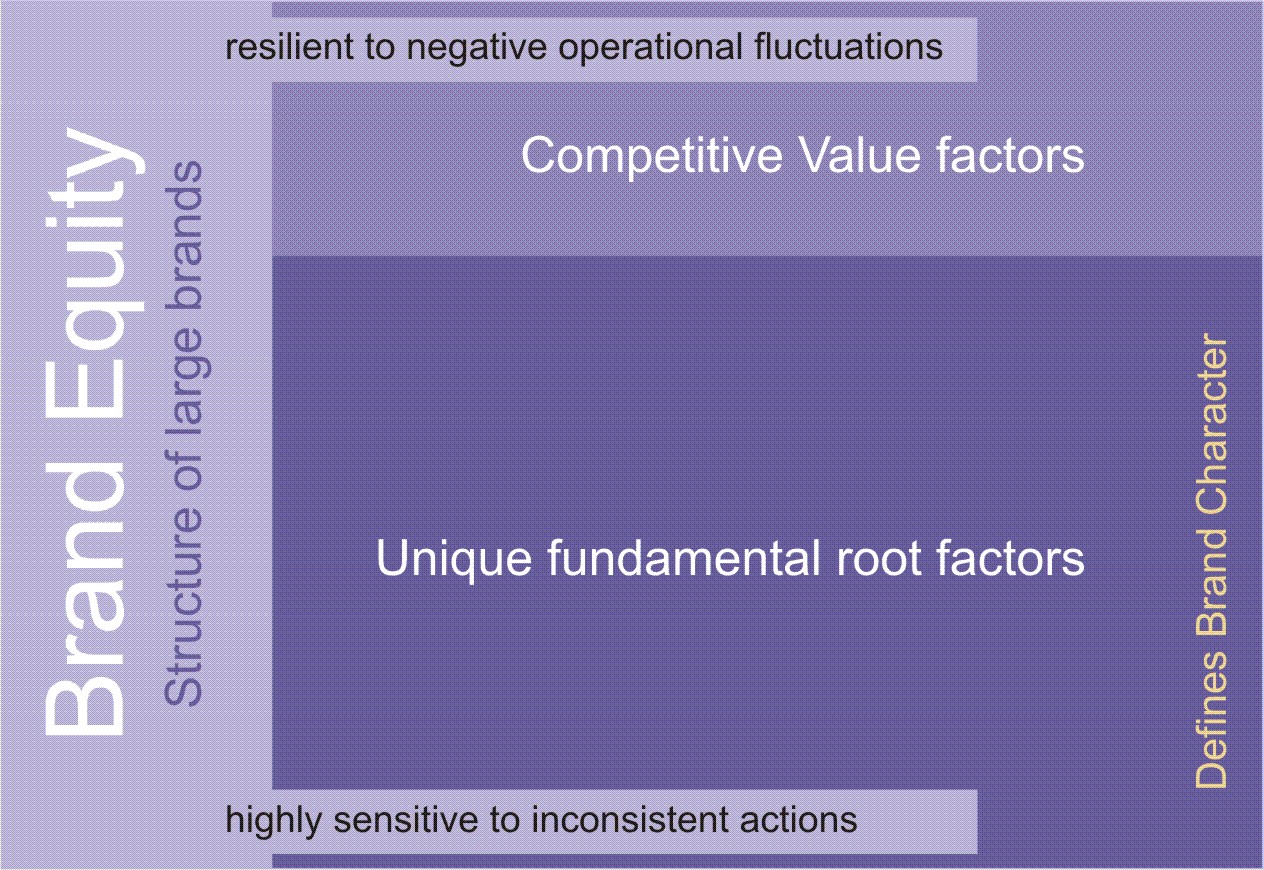Et tu Infosys
Certain big brands thrive on multiple competitive value factors but essentially draw the potential for unrestrained growth from just one or two strong root factors which of course happen to be fundamental in nature. Such root factors define the unique character of the brand in differentiating it from other equally large brands not just in their sector but from those in other industries also. Owing to the unique and powerful root factors they also remain largely resilient to vagaries of business, even to harsher ones. By the same logic such a brand would crumble should the actions of the company deride critical root factors, more helplessly – greater the degree of inconsistency..........................................
About two weeks back, a respected and highly accomplished independent director of Infosys tweeted saying; – "At a recent Infy board meeting, I was most impressed by Rohan Murty's brilliant tech-loaded presentation, which will enormously benefit Infy". She withdrew it in haste little while later, saying "she was carried by the brilliance she saw in the presentation" in wrongly tweeting about it. Further, in regret, she said she may have embarrassed both the Murthys by the needless tweet.
Another (independent?) director revealed to the press of his objection to the tweet and the intent to take it up with the chairman of the board but refused to be named.
Another independent director of the company, the lead among them, equally accomplished and who also held the position of the chairman of the board of directors in the company for a while comes across in the media as a strong defender of the new and strange leadership set-up at the company, being of course instrumental in facilitating it.
The charges of impropriety against Infosys are yet in whispers because of the superfluous attribute of 'holiness' stuck to it and being associated with highly revered Sir, NRN. Nonetheless, with its efforts in explaining the prudence in the decision increasingly sounding unconvincing the brand looks spent in spite of being 'holy' and great and well because of the issue being connected with Sir, NRN.
This hard push of a certain arrangement by the management at Infosys raises some larger questions which the MCA (ministry of corporate affairs) needs to address in making the concept of independent directorship squarely serve the real purpose underlying it. They are; a) what are the primary responsibilities of 'independent directors'? b) don't their responsibilities become reinforced and critical by the size, associated social risks and the glaring issues of deficient governance? c) can independent directors peddle narrow agendas?
It all now do sound more obvious than not that some of the directors in the board at Infosys are trying hard with objectionable overreach and in disregard to their independent responsibilities to build-up justifications for accommodating relatively inexperienced son of the chairman right at the top of the company in the guise as executive assistant to the executive chairman. With revenues balancing at rupees 50,000 crores and a sea of staff counting over 1,65,000 Infosys is expected by all to work with exceptionally mature strategies as it tries hard to catch-up with the competition. In a board with 7 independent directors whose primary responsibility is to discourage the kind of indiscreet decision of influential directors in the larger interest of the stakeholders it is hard to believe that the full board is in with the decision.
That the company sought the unstipulated sanction for the irregular appointment from MCA tells out the tactic – which also tells of the lack of depth in the resources and of course of the will on the part of the govt to play the ball straight with large companies. I believe MCA should have demonstrated greater maturity by using the opportunity to reinforce the true sense in the concept of 'independent directors' as also to send terse signal to the boards and independent directors in them in general by replying - "govt relies on the management maturity and sense of caution of the 'independent directors' in the boards on such issues" – instead of meekly saying – "the issue does not need its sanction". The Infosys instance however suggests that in the Indian context the borrowed concept of lead independent director do stifle the independence of other independent directors. Possibly that explains the exit of a professional independent director from the board of Infosys recently.
 For creating employment opportunities for the ocean of its youngsters coming out of the colleges India needs many companies across industry sectors which are truly, truly corporate by character. Infosys served well as an ideal model for long – by the way it cultivated growth, of funding it and by the superior governance standards it imposed upon itself in being able to do that. The turn of inconsistent events at Infosys has the potential to hurt not only its chances but also of India evolving with truly great global companies.
For creating employment opportunities for the ocean of its youngsters coming out of the colleges India needs many companies across industry sectors which are truly, truly corporate by character. Infosys served well as an ideal model for long – by the way it cultivated growth, of funding it and by the superior governance standards it imposed upon itself in being able to do that. The turn of inconsistent events at Infosys has the potential to hurt not only its chances but also of India evolving with truly great global companies.Infosys, I believe, is using-up its brand equity, encouraged or compelled by Sir, NRN's huge reputation in justifying a wrong decision which would remain wrong even if the board can succeed in showing the sense in it - even in the short term. In very mature and highly competitive markets revenue potential is almost at proportion to the brand equity. Brand equity is built by competitive attributes which collectively create the revenue potential and by the same logic actions that discount such attributes pull down the brand equity, more drastically with dents to most critical attributes – and thus do cause imminent loss in revenues. Therefore, the inappropriate decision to let the not comprehensively qualified son of an influential founder-shareholder and now the chairman-again to drive prime strategy initiatives in its trying times would only hurt the brand equity of Infosys and critically so because it discounts the often proclaimed conviction of the founders – of not mixing self interests with business.
Brand Infosys is surely wearing out – fast and in chunks. Not because of its prolonged failure to catch up with the competition, not because of the cases of visa issues, not because of the open unrest in the recent years on the choice of top two positions, not because of the missing push on products, not because of its failure to leverage with its surplus cash, not because of the indispensability evident in Sir NRN's return, not even because of getting his son along, not even because of the quick exodus of its top management – but because of the despising manner with which it handled the last two issues.
In a market that is really global and turning intensely competitive all the issues listed above are quite potential, even independently, to cut any lesser brand to size. Brand Infosys was resilient enough to bear the negatives in spite of the long time it took to think through its situation and in fact was bolstered considerably by Sir, NRN's return though that told of a certain weakness of the company – unbefitting its claimed sustained focus on developing leaders. But I believe brand Infosys clumsily cut itself off its prime source of strength by the indiscreet use (misuse) of two words – 'Intelligence' in justifying an inept decision – of getting Sir, NRN's son obliquely aboard and 'incompetence' the applied opposite of the other in explaining the understandably consequential (to the decision) exodus of top executives.
Appropriateness of installing a shareholder-director's son/daughter in the management of the business is subjective and is approved by stakeholders by the twin factors of entitlement and feasibility. In smaller and closely held companies it is not only rightful but necessary too irrespective of the age, experience and capabilities of the heir – kind of none of anybody's business. In mid-sized companies, with 51% plus holding, listed or not it is rightful but happens to be feasible by the method of induction in tune with the age, qualification and experience. It is a normal practice and in spite of being rightful companies choose to induct heir apparent starting below the senior management level for endowing with experience but mainly to ensure acceptability by the management staff. In companies large and widely held 'entitlement' is garnered but becomes unfeasible if care is not taken in ensuring acceptance by the senior functional mangers with convincing qualification, experience and expertise. Infosys; with shares split wide and afar, with its huge business volume facing mature global competition and with vast sets of staff in India and across the world – has become truly a global corporate and therefore is expected to be run as one to sustain it as such, in the interest of the shareholders, other stakeholders and the country as well. And in any case founders having encashed their stakes in favor of other equally interested shareholders lose the 'entitlement' to indulge in deeds of self interest – irrespective of the arguments of selfless advantages in it for the company – even if the chance of the claim turning true is good.
Infosys perhaps lost much of its critical brand equity by brazenly filching away the factor of 'intellect' from its staff than by appropriating it singularly for taking a son of an influential director in at the top. Even a layman in branding can tell - Infosys spent-off most of its brand equity by its insensitive 'send off' comments about a set of senior executives who quit, understandably in "consequence to self glorifying decisions of the board. In response to the news of exodus the company surprisingly remarked – "they were not adding value after all" – grandly sullying itself. Realizing the mistake, it ventured to 'undo' by saying "not all, some of them were good". Worse, it tried an intelligent 'retention strategy' out of its precarious situation by saying – we are on a process of staff evaluation and will bid good bye to non-performers – hoping to stick the fear of having to carry the insult should performers dare to quit!
Can Infosys, after years of recruiting and training hundreds of thousands of its staff – its prime resource – seek to throw the buck of slack performance right on them? After all the justifications (talks of thesis and Harvard) for the appointment and complaints (of deficient performance) about the staff – in the media – Infosys has this to say – our attrition in the last two months has sharply shot up and we are not comfortable with that. Infosys should know; branding happens not by what the company says but by what the audience make of what the company says.
Infosys's 'straw that broke the camel's back' moment happened when Mrs. NRN had also something to say in support of son's appointment. From being a rare, righteous, inspiring and quickly evolving global corporate that made every Indian feel proud Infosys quite disappointingly is demonstrating proprietorship attitude in its actions and talks.
I wish to clarify that this piece is not about Infosys as much as it is about; the need to upgrade MCA's administration resources, the need to reinforce the true sense in the concept of independent directors and the need to ensure appreciable conduct on the part of large companies – particularly those that seek resources and revenues in the global market – primarily in the interests of the country's reputation – for being able to build many more global Indian companies.
Branding Logic: (as evolved from my practice and research)
Certain big brands thrive on multiple competitive value factors but essentially draw the potential for unrestrained growth from just one or two strong root factors which of course happen to be fundamental in nature. Such root factors define the unique character of the brand in differentiating it from other equally large brands not just in their sector but from those in other industries also. Owing to the unique and powerful root factors they also remain largely resilient to vagaries of business, even to harsher ones. By the same logic such a brand would crumble should the actions of the company deride critical root factors, more helplessly – greater the degree of inconsistency.
Hard Marketing Logic: (as evolved from my practice and research)
Even very good marketing strategies can turn not good enough or even bad and negative because of the greater potential of the brand in supporting more complex strategies.
Leadership in a segment is not necessarily related with revenue volumes. Smaller brands can also claim it by showing the way to the competitors including the big ones. A big and considered leader brand may also lose leadership tag should it helplessly miss its way forward.
8 May 2014
Copyright: Adve Srinivasa Bhat, India.











